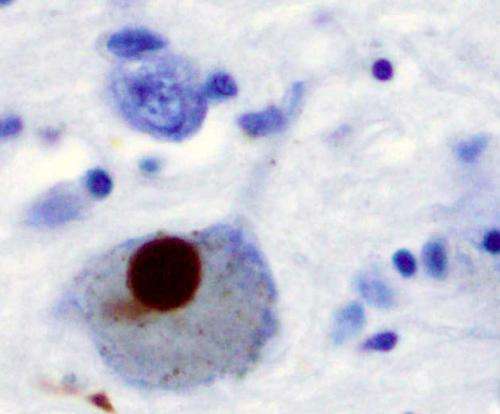Discovery may offer hope to Parkinson's disease patients

The finding of a common protein abnormality in these degenerative diseases supports a hypothesis among experts that abnormal deposition of proteins in many neurodegenerative disorders reflects an early change in these proteins.
"We have pinpointed a protein abnormality known as the 'SOD1 fingerprint' in regions of neuronal loss in the Parkinson's disease brain," said Associate Professor Kay Double who led the research published in Acta Neuropathologica.
"We believe this loss of neurons results from a combination of oxidative stress and a regional deficiency in copper, both of which occur specifically in vulnerable regions of the Parkinson's disease brain."
This new finding may offer hope to Parkinson's disease patients, since therapies targeting abnormal SOD1 protein have resulted in substantial improvements in motor function and survival time in models of ALS, prompting their progression into human clinical trials in this disease. This new finding suggests that such therapies may also be useful to treat Parkinson's disease.
The discovery that the abnormal SOD1 protein is also linked to nerve cell loss in the Parkinson's disease brain, suggests coincident degenerative pathways in Parkinson's disease and ALS.
Alterations in the anti-oxidant enzyme superoxide dismutase (SOD1) underlie around 20 percent of familial (f)ALS cases, where mutations to the sod1 gene result in functional and/or structural defects, including misfolding of the protein and loss of copper binding capacity. The aggregation of mutant SOD1 is believed to underlie motor neuron death in these ALS patients.


















